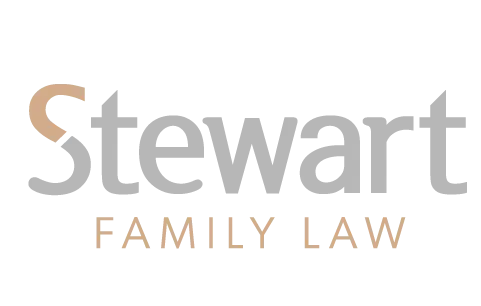
Family law mediation, also known as Family Dispute Resolution (FDR), is a structured but informal process that helps separating couples or family members resolve disputes without going to court. It sits between private negotiations and court proceedings, giving both parties more autonomy and flexibility.
A neutral third party, known as a family dispute resolution practitioner or mediator, facilitates the discussion. Their role is to guide the process, not to impose solutions. The focus is on finding workable outcomes, often in areas such as parenting disputes, property settlement, and ongoing financial arrangements.
Under the Family Law Act 1975 (Cth), attending FDR/Mediaton is a necessary step before most applications for parenting orders or property orders are filed with the court, unless an exception applies, such as urgency, risk of child abuse or safety concerns.
What are the origins of family mediation in Australia?
Mediation has been part of Australia’s family law framework for decades. The Family Law Act, introduced in 1975, encouraged counselling and conciliation, laying the groundwork for alternative dispute resolution. Court-annexed mediation began in the 1980s, and by the 1990s, courts regularly referred cases to mediation.
The most significant shift came with the 2006 family law reforms, which made family dispute resolution compulsory for most parenting disputes. Since July 2008, parties have not been able to file an application for parenting orders without first attempting FDR (unless an exemption is applied). This reform aimed to reduce unnecessary court cases and promote child-focused agreements.
Today, FDR is widely used, with research showing that up to 65% of cases result in full or partial agreement. The process is also associated with better emotional and psychological health outcomes and lower costs compared with litigation.
How does the mediation process work?
The process usually begins with an intake assessment, where the practitioner screens parties involved for suitability and risks such as domestic and family violence or mental illness. If the matter is deemed appropriate, parties are invited to attend mediation.
Mediation can occur in the same room, in separate rooms (shuttle mediation), online or even over the phone in some cases. Most matters can be addressed within a few hours (or a full day), although a second session may be arranged if more time is needed to gather information or consider options.
If agreement is reached, the practitioner helps formalise it. Parenting agreements may be written into parenting plans or filed as consent orders to become enforceable. Property and financial arrangements can also be documented for legal effect. If no agreement is reached, in parenting matters the practitioner may issue a section 60I certificate, which allows a party to proceed to court.

What can mediation resolve?
Mediation is flexible and can cover a wide range of family law matters, including:
- Parenting disputes such as living arrangements, time with the other parent, decision-making responsibilities, and communication between family members
- Property settlement issues, including dividing assets, business interests, superannuation, and debts
- Financial arrangements, including ongoing financial support, child support or spousal maintenance
- Broader relationship issues, such as expectations around financial responsibilities and parenting styles
Many separating couples use mediation even without an active dispute, as it allows structured discussions in a supportive environment to address separation matters and make clear decisions.
The benefits of family dispute resolution
The advantages of mediation are significant compared with court proceedings. People who utilise mediation to resolve family law problems often experience:
- Cost savings: Mediation is generally far less expensive than a full court case. Government-funded services, such as Family Relationship Centres, can also provide support at little or no cost.
- Time efficiency: Many disputes can be resolved in a single mediation session or within weeks, compared with months or years in court.
- Control and flexibility: The parties make the decisions, rather than having outcomes imposed by a judge.
- Privacy: Mediation is confidential and conducted in a private setting, away from the public nature of the courts.
- Preserved relationships: Mediation can reduce hostility by encouraging dialogue, which is particularly important when parents must continue to co-parent.
- Child-focused solutions: Agreements reached in mediation often better reflect the needs and best interests of children.
Research shows that participants often feel the process is respectful, that they were heard, and that their children’s needs were considered – outcomes that are sometimes less evident in court.
When mediation may not be suitable
Not every matter is appropriate for mediation. An exemption applies where there is:
- Domestic or family violence, or a risk to safety
- Concerns about child abuse
- An urgent issue requiring immediate court orders
- A party’s inability to participate effectively due to factors such as serious mental illness
- A lack of genuine desire to resolve issues on either parties side
- Evidence of serious disregard for existing court orders
In these cases, a section 60I certificate may be issued, allowing the case to proceed directly to court.

Preparing for mediation
Preparation can greatly improve the chances of reaching an agreement about family law disputes with your ex-partner. Depending on the type of matter you are addressing, if you are headed to mediation, you should:
- Collect relevant financial documents and information about your financial situation
- Consider your goals and the issues that need to be addressed
- Be ready to listen and show a genuine effort to resolve issues
- Think about bringing a support person if it helps you to feel safe or confident
- Obtain legal advice from a family lawyer, particularly in complex matters or where there are imbalances in bargaining power
Lawyer-assisted mediation
Lawyer-assisted mediation involves parties attending mediation with their own family lawyers present. This model can be particularly useful in cases involving significant assets, business interests, complex agreements, or disputes about parenting arrangements.
Having lawyers present provides several benefits:
- They ensure each party has received independent legal advice before and during the process
- They help clarify legal rights and obligations around property division, spousal maintenance, ongoing financial support, and parenting responsibilities
- They can assist in drafting a legally binding financial agreement, property agreement, or reviewing proposed parenting plans before documents are finalised
- They reduce the risk of undue influence or unfair agreements by providing real-time advice
- They support parties in navigating both financial matters and parenting issues in line with the Family Law Act
For many families, this approach provides confidence that their property and financial settlements and parenting arrangements are both practical and legally enforceable. It can also reduce the likelihood of later disputes or the need to return to court proceedings.
It’s important to note that you cannot use your own family lawyer as your dispute resolution or mediation facilitator, as they need to remain impartial during the mediation process.
Children’s interests in mediation
The best interests of the child are the primary consideration in parenting disputes. FDR practitioners ensure discussions are child-focused, and in some cases, children may be given a voice in the process. The aim is to support children’s emotional and psychological health and reduce conflict between parents.

Child-inclusive mediation
Child-inclusive mediation is designed for parenting disputes where the child’s voice can be brought into the process in a safe, structured way. A specially trained child consultant meets with the children separately, then feeds back their views and experiences to the parents during mediation.
This approach can:
- Help parents understand the child’s perspective without placing them in the middle of conflict
- Provide insight into the child’s needs, routines, and emotional wellbeing
- Encourage parents to design parenting arrangements that specifically reflect the child’s best interests
- Reduce ongoing disputes by aligning parenting plans with the child’s actual needs
While the child does not attend the mediation session itself, their involvement through a consultant often helps parents shift focus from conflict with a former partner to the financial responsibilities and parenting commitments that protect the child’s future.
Accessing family dispute resolution services
FDR services are available through both public and private providers. Options include:
- Private mediation services, often with shorter wait times and more flexible arrangements
- Family Relationship Centres and other government-funded services, accessible through Family Relationships Online or the Family Relationship Advice Line
The choice depends on personal circumstances, urgency and financial resources.
Ready to book mediation or need family law advice?
Family mediation in Australia is more than a legal requirement – it is a practical, child-focused, and cost-effective way of resolving disputes after separation. It has been a cornerstone of family law for decades, with proven success in helping parties reach agreement, reduce conflict, and avoid the stress of drawn-out litigation.
By approaching the FDR process with preparation, openness, and the right legal advice, separating couples can protect their children’s wellbeing, clarify financial and property arrangements, and move forward with greater certainty. If you would like to book a mediation with Stewart Family Law, please get in touch.
If you have any family law questions or need advice, we offer a free 15-minute chat and fixed-fee initial consultations starting from $300 plus GST with a senior solicitor.





